In 2000, Daniel Suelo left his life savings-all thirty dollars of it-in a phone booth. He has lived without money-and with a newfound sense of freedom and security-ever since. The Man Who Quit Money is an account of how one man learned to live, sanely and happily, without earning, receiving, or spending a single cent. Suelo doesn’t pay taxes, or accept food stamps or welfare. He lives in caves in the Utah canyonlands, forages wild foods and gourmet discards. He no longer even carries an I.D. Yet he manages to amply fulfill not only the basic human needs-for shelter, food, and warmth-but, to an enviable degree, the universal desires for companionship, purpose, and spiritual engagement. In retracing the surprising path and guiding philosophy that led Suelo into this way of life, Sundeen raises provocative and riveting questions about the decisions we all make, by default or by design, about how we live-and how we might live better.
The Man Who Quit Money Paperback
KSh 1,000.00
In 2000, Daniel Suelo left his life savings-all thirty dollars of it-in a phone booth. He has lived without money-and with a newfound sense of freedom and security-ever since. The Man Who Quit Money is an account of how one man learned to live, sanely and happily, without earning, receiving, or spending a single cent. Suelo doesn’t pay taxes, or accept food stamps or welfare. He lives in caves in the Utah canyonlands, forages wild foods and gourmet discards. He no longer even carries an I.D. Yet he manages to amply fulfill not only the basic human needs-for shelter, food, and warmth-but, to an enviable degree, the universal desires for companionship, purpose, and spiritual engagement. In retracing the surprising path and guiding philosophy that led Suelo into this way of life, Sundeen raises provocative and riveting questions about the decisions we all make, by default or by design, about how we live-and how we might live better.
1 in stock
Related products
-
Participation in Project Preparation: Lessons from World Bank-Assisted Projects in India (World Bank Discussion Papers)
KSh 1,000.00This study analyzes the extent to which the India program is meeting the World Bank’s objective of mainstreaming participatory approaches in project preparation and design. It includes ten projects in which participation was an overall project objective. These projects provided “good practice” lessons from a variety of social and natural resource management sectors. -
Tess of the D’Urbervilles
KSh 650.00Young Tess Durbeyfield attempts to restore her family’s fortunes by claiming their connection with the aristocratic d’Urbervilles. But Alec d’Urberville is a rich wastrel who seduces her and makes her life miserable. When Tess meets Angel Clare, she is offered true love and happiness, but her past catches up with her and she faces an agonizing moral choice. Thomas Hardy’s indictment of society’s double standards, and his depiction of Tess as “”a pure woman,”” caused controversy in his day and has held the imagination of readers ever since. Hardy thought it his finest novel and Tess the most deeply felt character he ever created.
-
Information Governance and Assurance: Reducing risk, promoting policy
KSh 10,780.00This comprehensive textbook discusses the legal, organizational and ethical aspects of information governance and assurance and security and their relevance to all aspects of information work.
Information governance describes the activities and practices which have developed to control the use of information, including, but not limited to, practices mandated by law. In a world in which information is increasingly seen as a top-level asset, the safeguarding and management of information is of concern to everyone. From the researcher who is responsible for ethical practices in the gathering, analysis, and storage of data, to the reference librarian who must deliver unbiased information; from the records manager who must respond to information requests, to the administrator handling personnel files, this book with equip practitioners and students alike to implement good information governance practice in real-world situations.
Key topics covered include:
Information as an asset
The laws and regulations
Data quality management
Dealing with threats
Security, risk management and business continuity
Frameworks, policies, ethics and how it all fits together.
Readership: Fully supported by examples, discussion points and practical exercises, this is essential reading for everyone who needs to understand, implement and support information assurance policies and information governance structures. It will be particularly valuable for LIS students taking information management and information governance courses, and information professionals with an advisory or gatekeeping role in information governance within an organization.
-
Americanah: Chimamanda Ngozi Adichie
KSh 1,695.00SHORTLISTED FOR THE BAILEY S WOMEN S PRIZE FOR FICTION 2014.
From the award-winning author of Half of a Yellow Sun, a powerful story of love, race and identity.
As teenagers in Lagos, Ifemelu and Obinze fall in love. Their Nigeria is under military dictatorship, and people are fleeing the country if they can. The self-assured Ifemelu departs for America. There she suffers defeats and triumphs, finds and loses relationships, all the while feeling the weight of something she never thought of back home: race. Obinze had hoped to join her, but post-9/11 America will not let him in, and he plunges into a dangerous, undocumented life in London.
Thirteen years later, Obinze is a wealthy man in a newly democratic Nigeria, while Ifemelu has achieved success as a blogger. But after so long apart and so many changes, will they find the courage to meet again, face to face?
Fearless, gripping, spanning three continents and numerous lives, the National Book Critics Circle Award-winning Americanah is a richly told story of love and expectation set in today s globalized world.
-
Handbook of Agricultural Entomology
KSh 16,380.00Handbook of Agricultural Entomology by Helmut van Emden is a landmark publication for students and practitioners of entomology applied to agriculture and horticulture. It can be used as a reference and as a general textbook.
The book opens with a general introduction to entomology and includes coverage of the major insects (and mites) that cause harm to crops, livestock and humans. The important beneficial species are also included. Organisms are described in a classification of insect Orders and Families. The emphasis is on morphological characters of major taxonomic divisions, “spot characters” for the recognition of Families, and the life histories, damage symptoms and economic importance of the various pest species.
The book is beautifully illustrated in full colour with more than 400 figures showing both the organisms and the damage caused to plants with diagnostic characters indicated by arrows. Coverage is world-wide and includes much material stemming from the vast personal experience of the author.
-
Sinners
KSh 650.00Hollywood: glittering premiers, dazzling movie sets, fabulous parties, plush love-nests hidden in Malibu and Beverly Hills. Behind the gorgeous playgrounds of the rich and famous lies a jungle of lust and perversity, greed and ambition, love and danger- where survival is all and innocence is a role nobody plays for long.
-
Psychology: The Science of Mind and Behaviour 4e
KSh 8,960.00Psychology: The Science of Mind and Behaviour fourth edition has been fully updated to reflect new developments in the field. Its celebrated pedagogical design has been reinforced with key research, issues and offers an exciting and engaging introduction to the study of psychology.The scientific approach brings together international research, practical application and the levels of analysis framework to encourage critical thinking about psychology and its impact on our daily lives. Key features:•Brand new! Psychology at Work interviews from Psychologists in the field provide a glimpse of their day-to-day work and the career path they have taken since completing a psychology degree. •Research Close Ups reflect new research and literature as well as brand new critical thinking questions to increase analysis and evaluation of the findings. •Core subject updates such as DSM-5 for psychological disorders. •Current issues and hot topics such as, social media, prosociality, critical perspectives of positive psychology and coverage of the replication crisis to prompt debates on the questions facing psychologists today.•Focus Arrow Boxes encourage critical analysis and application of the text.
-
The Ethnographic Imagination
KSh 1,200.00In this book Paul Willis, a renowned sociologist and ethnographer, aims to renew and develop the ethnographic craft across the disciplines. Drawing from numerous examples of his own past and current work, he shows that ethnographic practice and the ethnographic imagination are vital to understanding the creativity and irreducibility of experience in all aspects of social and cultural practice.
Willis argues that ethnography plays a vital role in constituting ‘sensuousness’ in textual, methodological, and substantive ways, but it can do this only through the deployment of an associated theoretical imagination which cannot be found simply there in the field. He presents a bold and incisive ethnographically oriented view of the world, emphasizing the need for a deep-running social but also aesthetic sensibility. In doing so he brings new insights to the understanding of human action and its dialectical relation to social and symbolic structures. He makes original contributions to the understanding of the contemporary human uses of objects, artefacts and communicative forms, presenting a new analysis of commodity fetishism as central to consumption and to the wider social relations of contemporary societies. He also utilizes his perspective to further the understanding of the contemporary crisis in masculinity and to cast new light on various lived everyday cultures – at school, on the dole, on the street, in the Mall, in front of TV, in the dance club.
This book will be essential reading for all those involved in planning or contemplating ethnographic fieldwork and for those interested in the contributions it can make to the social sciences and humanities.

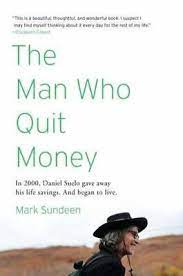
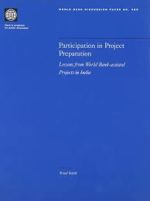




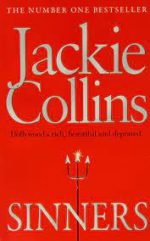
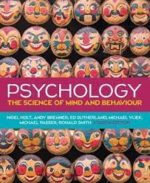
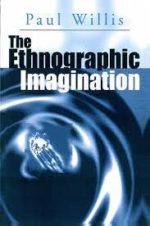
Be the first to review “The Man Who Quit Money Paperback”